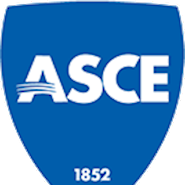
Dennis G. Grubb, Ph.D., P.E., F.ASCE, a subject matter expert with Jacobs Engineering and registered professional engineer with more than 30 years of experience in environmental remediation, beneficial use, and stabilization/solidification (S/S), has been named a fellow by the ASCE Board of Direction.
Grubb is a prior NSF Creativity (Stanford/Berkeley), NSF CAREER (Georgia Tech), NSF-NATO Postdoctoral (Katowice, Poland) and Fulbright (Lima, Peru) Fellowship awardee. He launched the environmental geotechnics program at Georgia Tech (1996-2000), then served as a senior research associate at Stevens Institute of Technology (2005-2010) working on the fate and transport of heavy metals. His industrial R&D roles (CETCO, Phoenix Services) for five years at the director/vice president level focused on environmental technology and sustainability. During this time, he managed sponsored research at nine universities across the United States and South Africa.
His 16 years of direct consulting includes Geosyntec, Apex Environmental, Schnabel Engineering and Jacobs (formerly CH2MHILL/CH2M) including acting as the chief technical liaison to the PENNDOT Strategic Recycling Program (2000-05). Notable PENNDOT achievements included researching and authoring a special provision for using crushed curbside collected glass in earthwork construction. Grubb also spearheaded the first lightweight tire shred fill embankments in PA (Tarrtown Bridge) using 750,000 scrap tires sourced from illegal dumps. Currently, he is enabling the beneficial use of tire derived aggregate (TDA) in Guam.
High-profile remediation projects where Grubb served/serves as the treatability and S/S SME include the Tyco Marinette (Wisconsin) Sediment Remediation Project, and the ongoing USEPA Gowanus Canal Superfund Site (NYC), both appearing in ASCE journals. He has won numerous awards for his innovation, among them the prestigious 2014 ASCE Samuel Arnold Greeley Award and 2017, 2020 and 2021 Best Practice-Oriented Paper Awards and July 2022 Editor’s Choice Selection from ASCE.
The 2014 award focused on BOF steel slag and dredged material as engineered fills. The 2017 award paper summarized the Tyco project showcasing the S/S mix designs for arsenic immobilization coupled with a dredge scow screening program to control (expensive) reagent dosing in real time. The 2020 and 2021 award papers respectively involved the use of blast furnace slag aggregates in porous pavement drainage systems to passively remove phosphorus from stormwater, and BOF steel slag and sugarcane bagasse to treat acid mine drainage in Eastern South Africa. Lastly, the Editor’s Choice selection describes the use of BOF slag in a zero-emission biogeochemical landfill cover to scrub methane, carbon dioxide, and hydrogen sulfide.
Grubb has over 55 refereed journal publications and three awarded patents. He was at Drexel (BSCE 1988), Stanford (MSCE 1989), and the University of California, Berkeley (M.Eng, Ph.D.; 1993, 1995). Grubb joined ASCE as an undergraduate and has engaged ASCE at many levels, including serving as an editorial board member for two ASCE journals.



